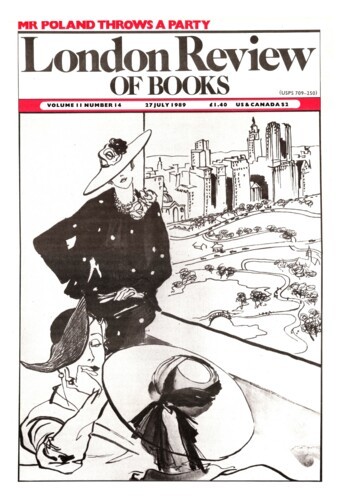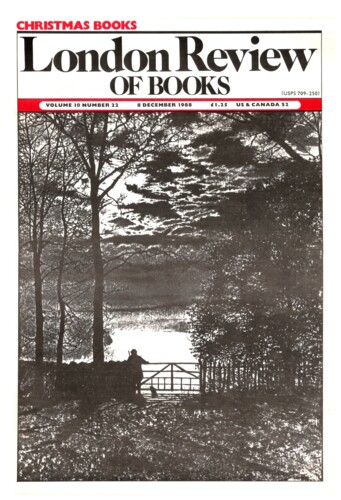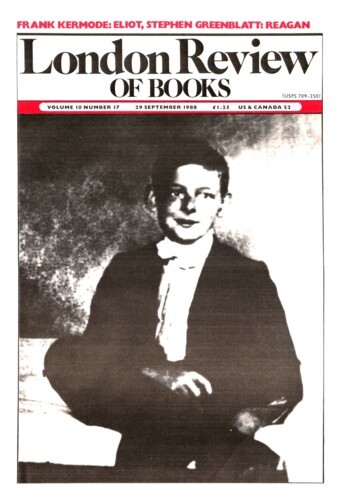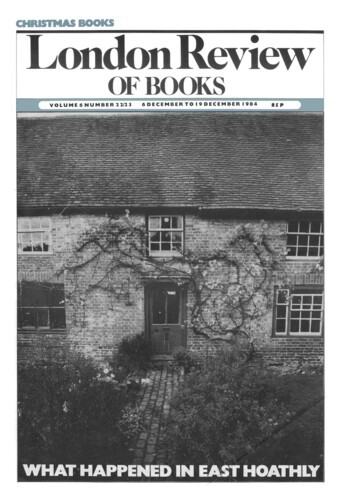Spivsville
Jonathan Bate, 27 July 1989
In Book Two of Disraeli’s Sybil, or The Two Nations the hero meets two strangers in the ruins of an abbey. One of them claims that the monasteries represented the only authentic communities England has ever known. In modern times, ‘there is no community in England; there is aggregation, but aggregation under circumstances which make it rather a dissociating than an uniting principle.’ This dissociating aggregation is at its most intense in great cities, where ‘men are brought together by the desire of gain. They are not in a state of co-operation, but of isolation, as to the making of fortunes; and for all the rest they are careless of neighbours.’ Those who make fortunes in the great City do so in a state of even greater isolation than their 19th-century predecessors: the so-called communications revolution has had the curious result that they communicate not with other human beings but with green screens, fax machines and modems.




